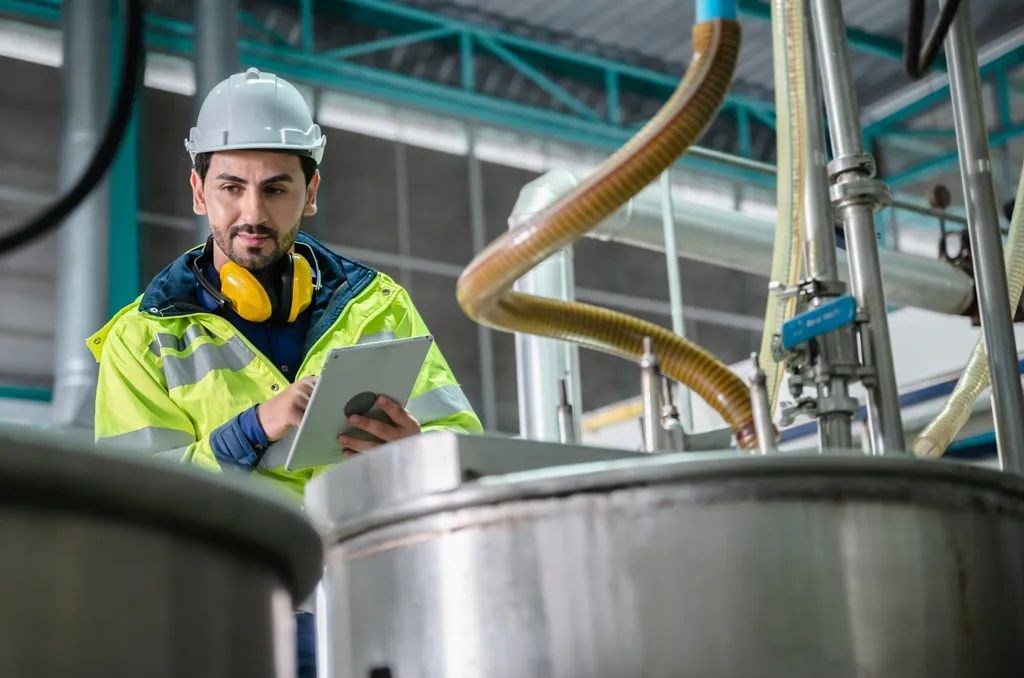Inspection in manufacturing processes
Published date: 29 May 2023

In the realm of manufacturing, ensuring product quality is paramount. Quality inspection is a systematic process employed by manufacturers to evaluate and verify the quality, consistency, and conformity of products to predefined standards and specifications. By implementing comprehensive inspection procedures, manufacturers can identify and rectify defects, minimise production errors, and deliver superior products to their customers. In this blog post, we will delve into the world of inspection in manufacturing, exploring its significance and how it works.
Understanding quality inspection
Quality inspection aims to detect any defects or deviations in products, ensuring that they meet the required standards. This process ensures that products are safe, reliable, and meet customer expectations. Quality inspection involves a series of tests and checks that are performed on a product. These checks can include visual inspections, dimensional measurements, functional testing, and more.
The goal of quality inspection is to identify any defects or issues with a product before it reaches the end-user. By conducting thorough product inspections, manufacturers can reduce the risk of product recalls, improve customer satisfaction, and increase overall profitability. In short, quality inspection is an essential part of the manufacturing process that ensures high-quality products are delivered to customers every time.
Types of quality inspection
There are different types of quality inspection techniques employed in manufacturing, depending on the stage of production and the specific requirements of the product. Some common types include:
- Pre-production inspection: This inspection is carried out upon receiving raw materials or components from suppliers. It ensures that the incoming materials meet the required quality standards, preventing the use of defective or substandard materials. Pre-production inspection also includes the inspection of manufacturing equipment.
- In-process inspection: In-process inspection takes place during the manufacturing process itself. It involves regularly examining and testing products at various stages, to ensure that they adhere to quality standards and specifications and to correct potential problems.
- Pre-shipment inspection: This inspection occurs once the manufacturing process is complete. It involves the examination of samples of finished products to verify their quality and conformity before they are shipped to customers.
The inspection process
The inspection process typically follows a systematic approach, involving the following steps:
- Defining standards: Manufacturers establish clear and specific quality standards and specifications that products must meet. These standards serve as benchmarks against which the inspection is carried out. The ISO 9000 series of standards is one of the main international Quality Management Systems (QMS) used today.
- Sampling: Instead of inspecting each individual item, manufacturers often employ statistical sampling techniques to select a representative sample of products for inspection. This approach allows for a more efficient and cost-effective inspection process.
- Inspection methods: Depending on the product and its requirements, various inspection methods may be used, such as visual inspection, measurement and testing, functional testing, and non-destructive testing. These methods help identify defects, deviations, or non-compliance with the established standards.
- Reporting and action: Once the inspection is complete, the results are documented in an inspection report. If any defects or non-conformities are found, appropriate actions are taken, such as reworking, repairing, or rejecting the products.
Quality inspection is an integral part of the manufacturing process, enabling manufacturers to maintain high-quality standards and deliver superior products. By following a systematic inspection process, manufacturers can enhance product quality, minimise errors, and ultimately satisfy their customers’ expectations.
At Conro Electronics, we’ll show you how to improve product reliability while increasing performance and lowering costs. Our team of technical support specialists will provide your company with dependable global supply, unrivalled efficiency, and superior technical support.
Feel free to contact us on 0208 953 1211 or send us an email to info@conro.com




Comments
There are currently no comments, be the first to comment.